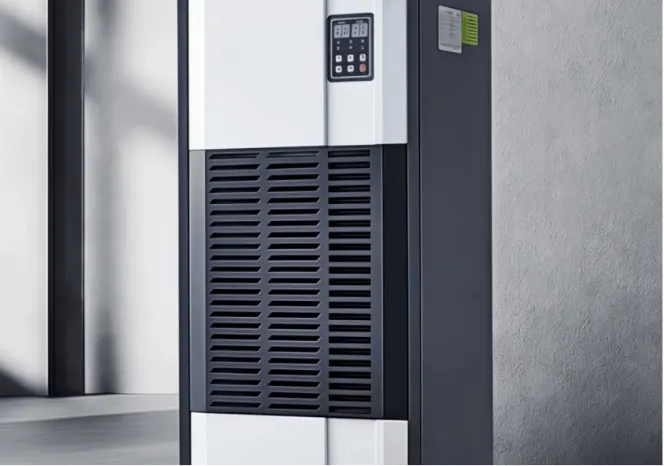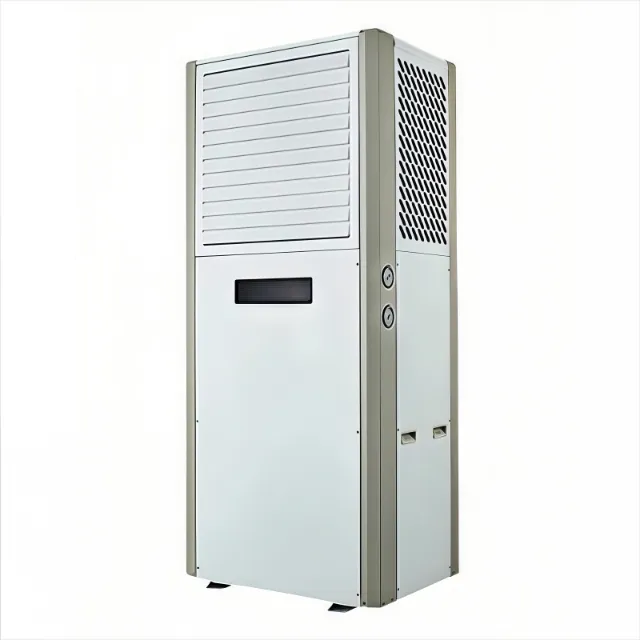Can an Air Conditioner Be Used as a Dehumidifier?

When people talk about cooling and comfort inside a house, the first word is almost always “air conditioner.” In hot summers, it feels like a must have. But comfort is not just about cold air, you know. Humidity matters too. If the air is too wet, it feels sticky, heavy, even unhealthy. So people ask again and again: can an air conditioner work like a dehumidifier? The short answer is yes, but not the whole story.
How an Air Conditioner Works
Basic Cooling Process
An air conditioner’s main job is to cool. That’s it. It pulls warm air in, runs it over coils filled with refrigerant, and sends cooler air out. During this, some moisture in the air condenses on the coils. That’s why you see water dripping from the drain pipe. Nothing magic, just physics.
Moisture Removal as a Byproduct
So yes, air conditioner removes some moisture. But honestly, it’s more like a side job. Cooling is the real target. Moisture removal just happens on the way. On hot days, the air conditioner runs longer, so you notice more dripping water. But does this mean your air conditioner can fully replace a dehumidifier? Not really.
Dehumidifier vs Air Conditioner: What’s the Difference?
Purpose of a Dehumidifier
A dehumidifier has one task: take water out of the air. Air goes in, gets cooled just enough, moisture condenses, water collects in a tank, and drier air goes back out. No cooling the room, no fancy features. Just drying.
Purpose of an Air Conditioner
air conditioner is different. It cools the air first, removes a bit of dampness second. For mild humidity, this little effect might be enough. But in damp basements, rainy seasons, or coastal climates, air conditioner alone doesn’t do the trick.
Energy Efficiency Comparison
Here’s another point: power. Using air conditioner just for moisture control is like using a big truck to deliver one small box. It works, but it wastes energy. Dehumidifiers do the same job with less power use.
Situations Where an Air Conditioner Works as a Dehumidifier
High Humidity Climates
In tropical or coastal areas, air conditioners pull out lots of water. The drain line may drip all day long. So in those places, air conditioner cools and also dries, two things at once.
Small or Enclosed Spaces
In a small room, like a bedroom or an office, the moisture removal may be enough. Not perfect, but acceptable for daily comfort.
During Continuous Cooling Mode
When air conditioner keeps running, it keeps drying too. But once the set temperature is reached, the unit shuts off. That leaves moisture in the air. So the effect is inconsistent.
Limitations of Using an air conditioner as a Dehumidifier
Inconsistent Humidity Control
Air conditioners sense temperature, not humidity. Once the room feels cool enough, the unit stops. Dampness may still be high. That’s the gap between air conditioner and a real dehumidifier.
Higher Energy Use Compared to Dedicated Dehumidifier
Running air conditioner just for drying eats more electricity. A proper dehumidifier is cheaper to run.
Wear and Tear on the Air Conditioner
Using air conditioner for a job it wasn’t designed for means extra strain. More work for the machine, more maintenance later, maybe shorter life too.

How to Improve Dehumidification with Your air conditioner
Use Dry Mode (if available)
Modern air conditioners often come with “dry mode.” This slows down the fan, focuses more on pulling water out of the air. If your unit has it, give it a try.
Keep Filters Clean
Dirty filters block airflow. Less airflow = less cooling and less drying. Cleaning once a month helps a lot. Many people forget this step.
Combine with a Standalone Dehumidifier for Best Results
In basements, greenhouses, or storage rooms, the best plan is to use both. air conditioner cools, dehumidifier dries. Together, they make air more comfortable and safe.
When You Should Choose a Dehumidifier Instead
Very Damp Basements or Cellars
Basements stay damp by nature. air conditioner alone can’t fix that. You need a dehumidifier.
Areas with Mold or Allergy Concerns
Moist air grows mold. Mold causes allergies, bad smells, health issues. For homes with kids or elderly people, a dedicated dehumidifier is the safer option.
Spaces That Don’t Need Cooling, Only Drying
Some places don’t need cold air. Warehouses, libraries, storage rooms. Running air conditioner there wastes power. Dehumidifier is better.
Final Thoughts
So, can an air conditioner act as a dehumidifier? Yes, but only partly. It cools, and it dries a little. For light humidity, that might be fine. For big moisture problems, you still need a proper dehumidifier.
For farms, workshops, and storage rooms where keeping humidity in check is super important, Foshan Daiho Equipment Co., Ltd. offers dependable gear. Their lineup includes dehumidifiers, circulation fans, exhaust fans, and air coolers. With ISO9001 certification and global safety approvals, Daiho’s tools help industries, agriculture, and public spaces all over the world.
FAQ on Air Conditioners and Dehumidifiers
Q1: Does every air conditioner remove humidity?
Yes, all air conditioners remove some water as they cool. But the level depends on how long they run.
Q2: Is dry mode on air conditioner the same as a dehumidifier?
Not really. Dry mode helps, but a dehumidifier is stronger and steadier.
Q3: Will running air conditioner as a dehumidifier increase electricity bills?
Yes. air conditioner uses more power than a dehumidifier for the same result.
Q4: Can an air conditioner fully replace a dehumidifier in all situations?
No. For serious humidity problems, air conditioner isn’t enough.
Q5: Which is better for health, air conditioner or dehumidifier?
Depends. air conditioner cools and removes a little moisture. Dehumidifier directly reduces dampness and mold risk.
